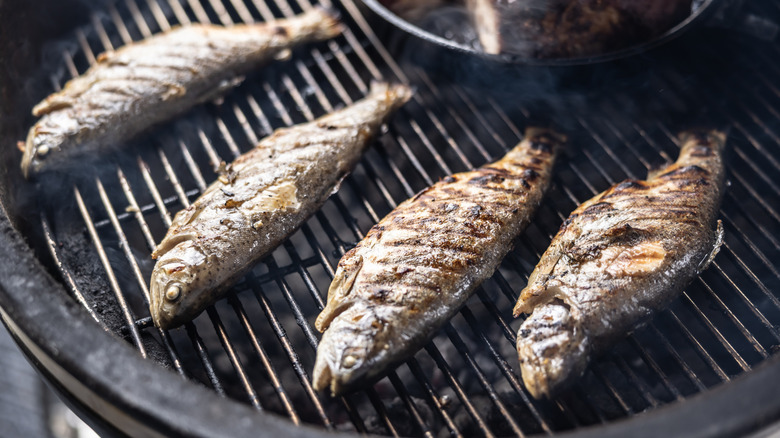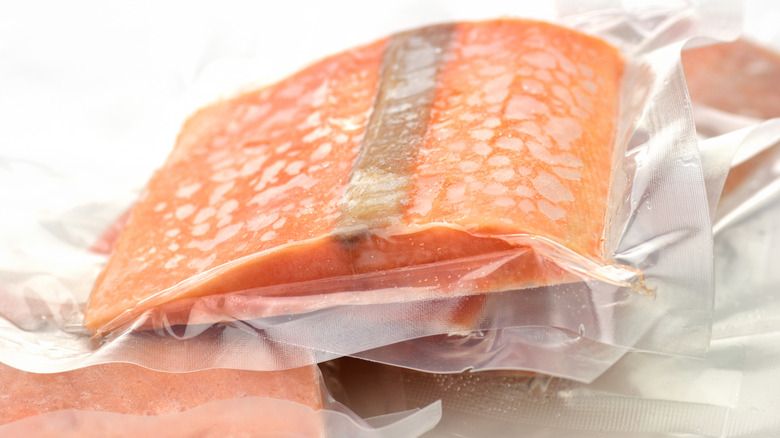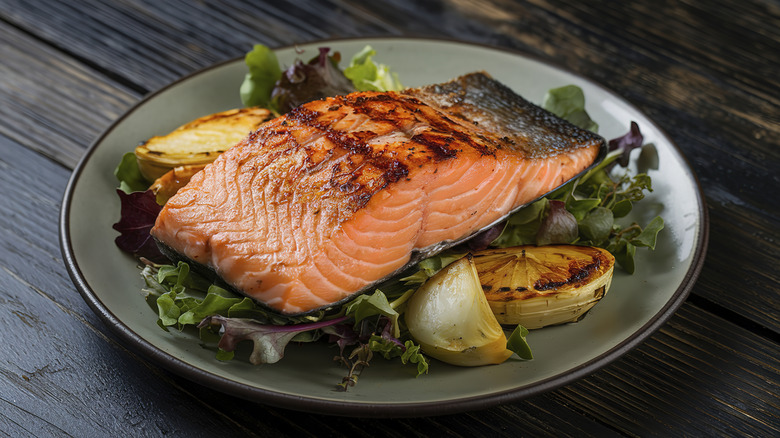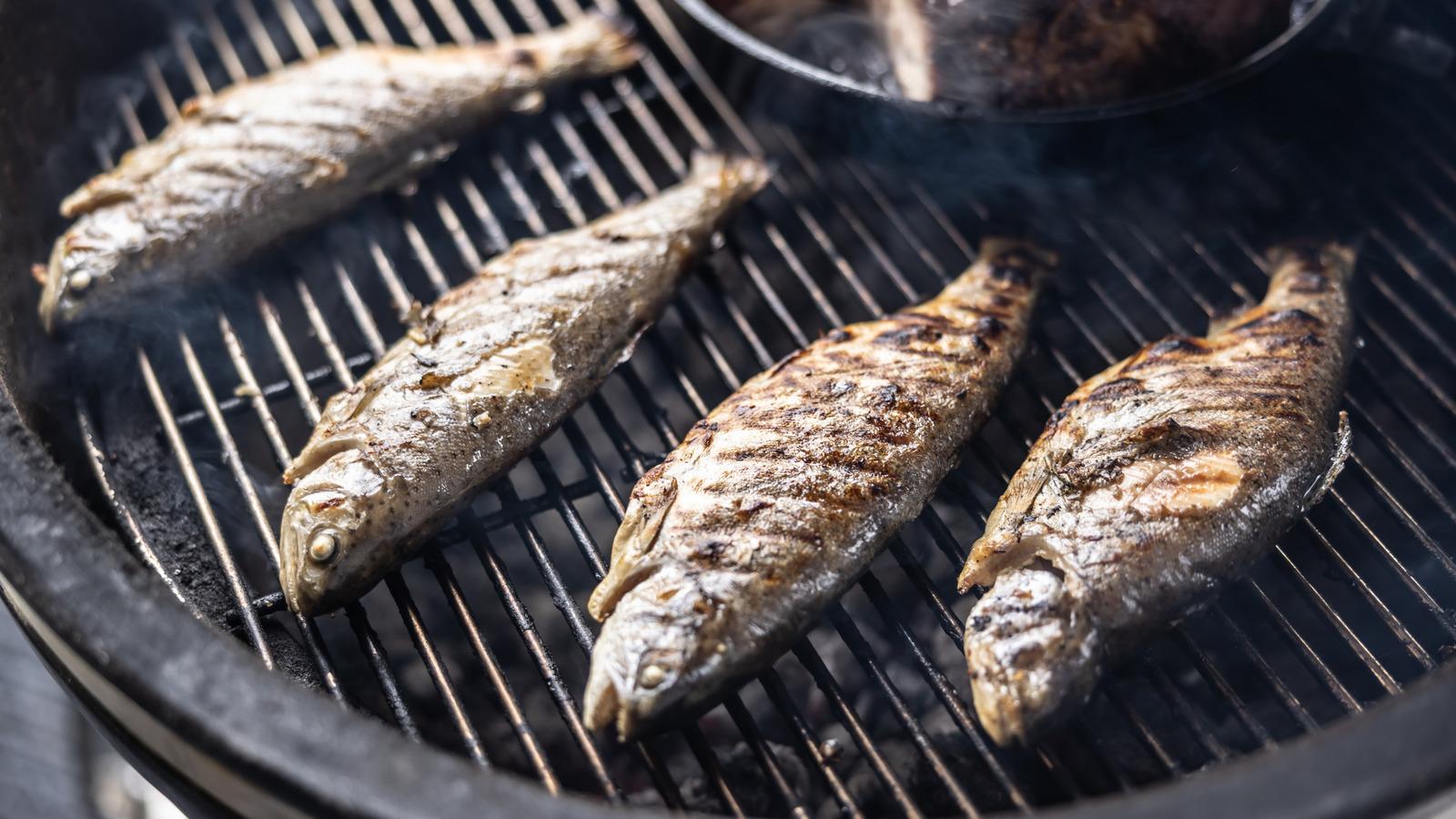
Simpleimages/Getty Images
Nothing is more frustrating than being ready to prepare a delicious meal, only to realize your main ingredient is still rock-solid because you forgot to take it out of the freezer. In the event of a cookout, there's no easier way to throw a wrench in your plans.
Although it may be tempting to just toss that frozen slab on the grill and hope for the best, if that frozen slab is a piece of seafood, you should think twice. Frozen seafood is among the foods you should never cook on the grill. Whether it's salmon fillets or shrimp skewers, cooking frozen seafood on the grill is a mistake that can yield unsatisfactory results and could ruin your entire meal.
Using a dry-heat method on frozen seafood results in uneven cooking that's unpleasant to consume. The outside will likely get overdone, while the inside may remain frozen, cold, or simply not up to the safest temperature. If you're looking to bring something a little different to the grill with seafood this weekend, it's important to thaw it first.
How to thaw your seafood before grilling

Saddako/Getty Images
Ideally, frozen seafood should be thawed slowly overnight in the refrigerator to yield quality results. Avoid thawing on the counter, as bacteria can rapidly multiply at room temperature. Thawing in the microwave, though approved by the FDA, can ruin the texture and flavor of your product.
If you need to thaw your seafood fast, submerge it in cold water for about 10 minutes, and be prepared to replace the water as it becomes room temperature. Do not use hot water. The rapid change in temperature will destroy the texture and potentially breed bacteria.
If you're really in a pinch and have no choice but to place your frozen seafood right on the grill, wrap it in aluminum foil first to help it thaw all the way through before exposing it to dry heat. When done correctly, grilling is a great way to prepare your favorite seafood.
Are there health risks to grilling frozen seafood?

Delia Pirvu / 500px/Getty Images
Your biggest concern when grilling frozen seafood is probably just a subpar texture. Frozen seafood is actually safer to consume raw because freezing kills off any parasites that may have been present in the product, so an underdone center isn't necessarily a cause for panic.
Still, there is always a risk when it comes to eating raw or undercooked seafood. Freezing doesn't kill all harmful pathogens, and many of these can cause gastroenteritis (stomach flu). Raw shellfish, particularly oysters, carry even greater risks such as vibriosis, which can be fatal.
Your best bet is always to cook seafood to a safe internal temperature. In most cases, this is around 145 degrees Fahrenheit. You'll know your fish is done when the flesh easily flakes with a fork. With shellfish like shrimp, scallops, crab, and lobster, you'll know they're finished when the flesh is opaque and firm.



